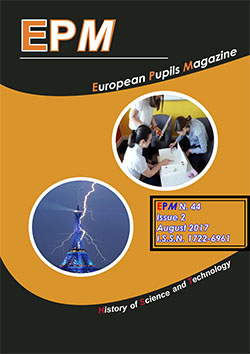Math Science Chemistry Economics Biology News Search
EPMagazine offers universities and schools a collaborative literary space for the sharing of scientific ideas and discoveries in their historical and cultural context. What better way for young thinkers to develop their communication skills in the sciences, across international borders using English as a common language whilst incorporating first language contributions into the layout. The European Editorial Board supports scholars of the sciences as they develop their written and spoken English language skills through article contribution and conference presentation in a mentored environment consisting of high school students, university students, school teachers, and university professors from many institutions globally. It is the goal of the EPMagazine to invite contributions from scholars the world over and in my opinion, never has such a goal been more significant to the task of the future of science in history. This is because the ways we proceed in the sciences today will impact the future of humanity and the future of our planet. I invite you to explore the website and consider making a contribution by contacting the editors to find out the rules for making a contribution.
The History of Science and Technology is the history of what it means ‘to know’ and to possess ‘skill’ (art or craft). A specific Western history and culture of observation, experiment and experience culminated during the Enlightenment as consolidated intellectual practice and reflected in the natural and human sciences broadly. In 2010 we recognise that what was deemed appropriate to historical process is not always kind to humanity, to nature or reflective of responsible or ethical action. The craft we use to enact new knowledge upon the world and each other must reflect ethical action and human responsibility if we wish to use science as a technology for creating peace on Earth. This has reflected in scientific practice at times during history. We cannot separate the sciences from human responsibility for one another and I challenge scholars to take up this task for the future through continued communication, contribution and sponsorship. Published three times per year in print, once a year on disc and available online all year, I can only imagine this magazine will continue to grow from strength to strength.
Natalie Ross – Australian Catholic University: Brisbane/Melbourne, 2010


